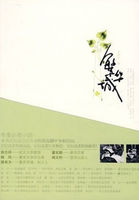With expert help in the difficulties of staging and rehearsing a classic play, they reproduced the Ajax of Sophocles upon the Hull-House stage. It was a genuine triumph to the actors who felt that they were "showing forth the glory of Greece" to "ignorant Americans." The scholar who came with a copy of Sophocles in hand and followed the play with real enjoyment, did not in the least realize that the revelation of the love of Greek poets was mutual between the audience and the actors. The Greeks have quite recently assisted an enthusiast in producing "Electra," while the Lithuanians, the Poles, and other Russian subjects often use the Hull-House stage to present plays in their own tongue, which shall at one and the same time keep alive their sense of participation in the great Russian revolution and relieve their feelings in regard to it. There is something still more appealing in the yearning efforts the immigrants sometimes make to formulate their situation in America. I recall a play written by an Italian playwright of our neighborhood, which depicted the insolent break between Americanized sons and old country parents, so touchingly that it moved to tears all the older Italians in the audience.
Did the tears of each express relief in finding that others had had the same experience as himself, and did the knowledge free each one from a sense of isolation and an injured belief that his children were the worst of all?
This effort to understand life through its dramatic portrayal, to see one's own participation intelligibly set forth, becomes difficult when one enters the field of social development, but even here it is not impossible if a Settlement group is constantly searching for new material.
A labor story appearing in the Atlantic Monthly was kindly dramatized for us by the author who also superintended its presentation upon the Hull-House stage. The little drama presented the untutored effort of a trades-union man to secure for his side the beauty of self-sacrifice, the glamour of martyrdom, which so often seems to belong solely to the nonunion forces. The presentation of the play was attended by an audience of trades-unionists and employers and those other people who are supposed to make public opinion. Together they felt the moral beauty of the man's conclusion that "it's the side that suffers most that will win out in this war--the saints is the only ones that has got the world under their feet--we've got to do the way they done if the unions is to stand," so completely that it seemed quite natural that he should forfeit his life upon the truth of this statement.
The dramatic arts have gradually been developed at Hull-House through amateur companies, one of which has held together for more than fifteen years. The members were originally selected from the young people who had evinced talent in the plays the social clubs were always giving, but the association now adds to itself only as a vacancy occurs. Some of them have developed almost a professional ability, although contrary to all predictions and in spite of several offers, none of them have taken to a stage career. They present all sorts of plays from melodrama and comedy to those of Shaw, Ibsen, and Galsworthy.
The latter are surprisingly popular, perhaps because of their sincere attempt to expose the shams and pretenses of contemporary life and to penetrate into some of its perplexing social and domestic situations. Through such plays the stage may become a pioneer teacher of social righteousness.
I have come to believe, however, that the stage may do more than teach, that much of our current moral instruction will not endure the test of being cast into a lifelike mold, and when presented in dramatic form will reveal itself as platitudinous and effete.
That which may have sounded like righteous teaching when it was remote and wordy, will be challenged afresh when it is obliged to simulate life itself.















